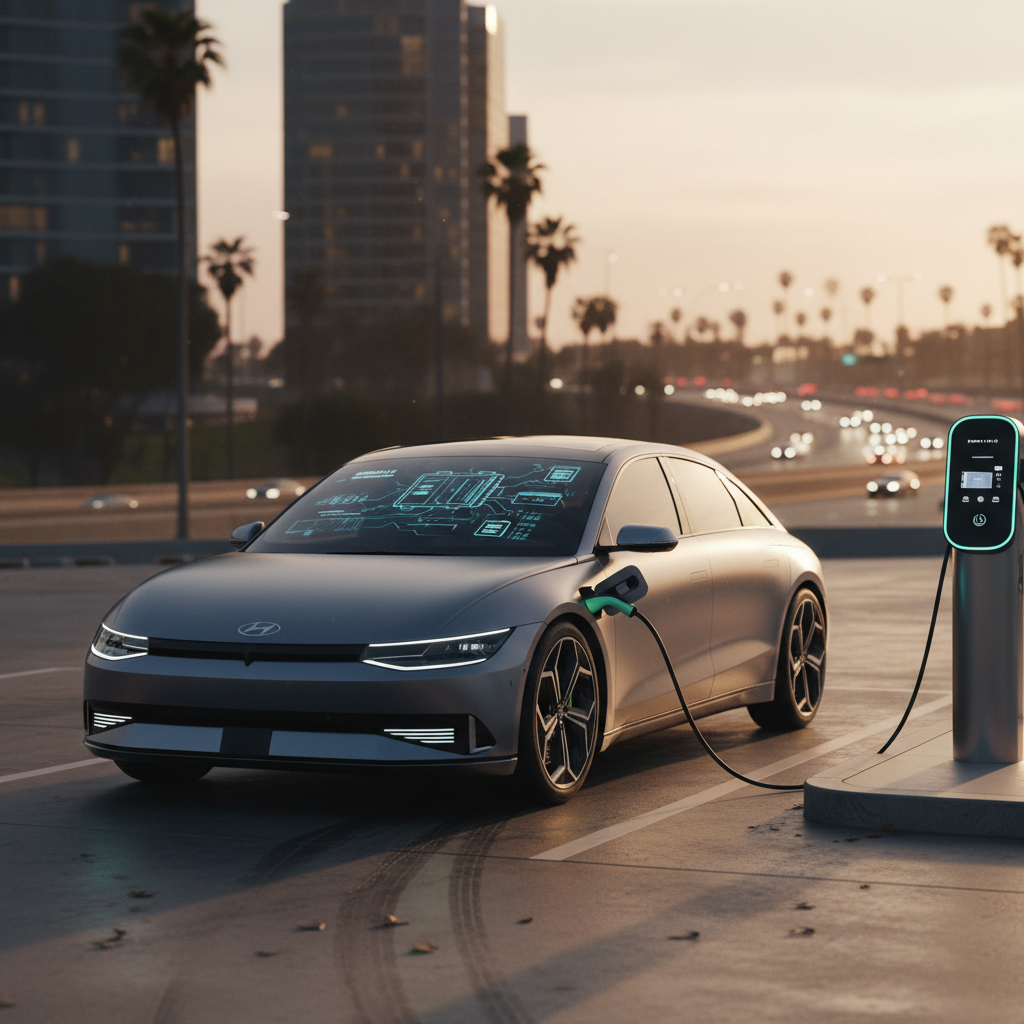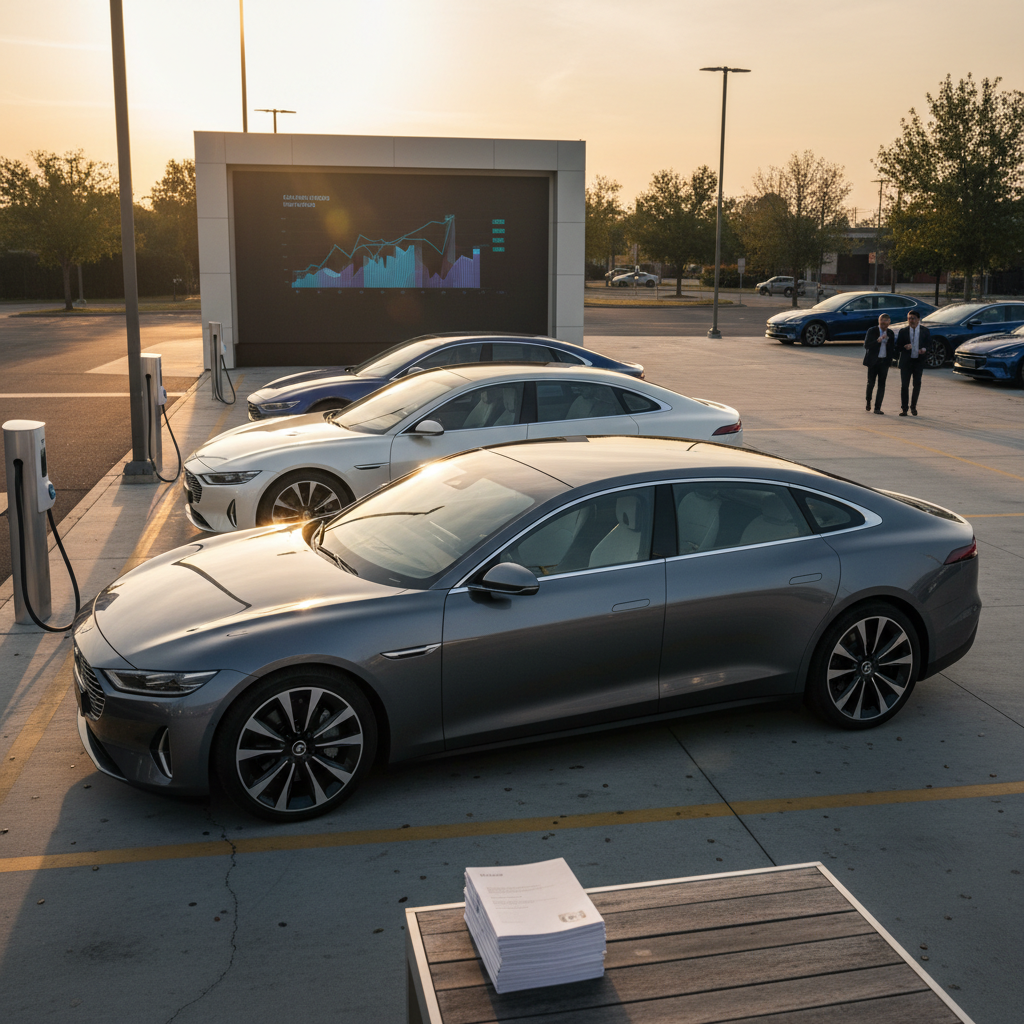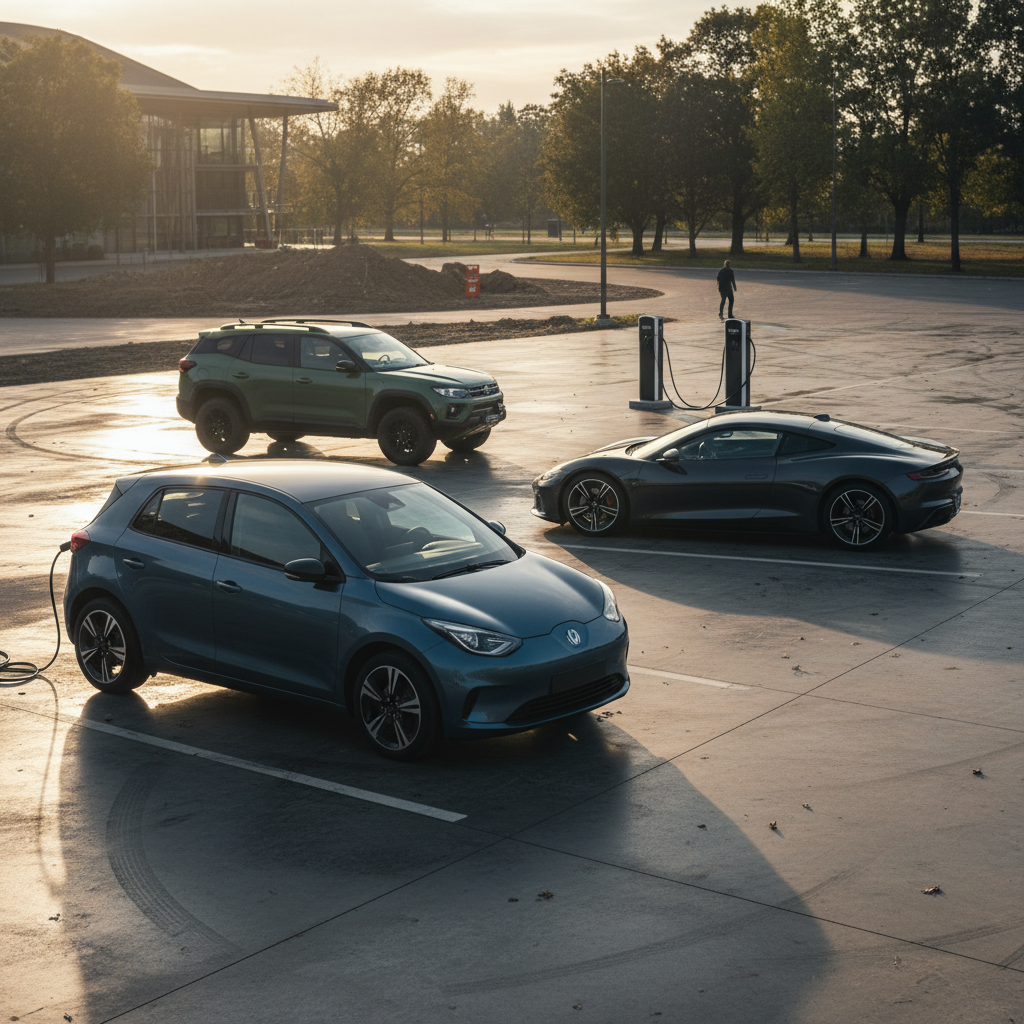Searching for “hybrid used cars near me” is a smart move in 2025. Hybrids give you much better fuel economy than gas‑only cars, without the charging logistics of a full EV. But to get a great deal locally, you need to understand battery health, model reliability, and how pricing works in today’s softening used‑car market.
Quick takeaway
Why hybrid used cars are hot in 2025
Hybrid momentum in today’s market
A few forces are converging to make used hybrids particularly attractive right now. New EV adoption has slowed in some parts of the U.S. as buyers weigh charging access and up‑front cost, while hybrids offer an easy middle ground: big fuel savings, no plugs required. At the same time, the used‑car market is normalizing after the pandemic spike, and prices for electrified vehicles, hybrid and EV, have softened as more off‑lease inventory hits dealer lots.
Who a used hybrid is perfect for
Pros and cons of buying a used hybrid
Big advantages
- Excellent fuel economy: Many hybrids deliver 40–55 mpg. Over 10,000–15,000 miles per year, that’s a major fuel‑cost reduction versus a comparable gas car.
- City‑friendly: Hybrids shine in stop‑and‑go traffic, where regenerative braking recaptures energy you’d otherwise waste as heat.
- Lower emissions: You’ll cut tailpipe emissions substantially without changing your fueling routine.
- Mature tech: Hybrid technology from Toyota, Honda, Hyundai and others has more than two decades of real‑world use behind it.
Trade‑offs to know
- Battery replacement risk: Hybrid batteries often last 8–10 years or more, but when they fail, replacements can run roughly $2,000–$6,000 including labor.
- Higher repair complexity: Fewer independent shops work deeply on hybrid systems, so you may rely more on dealers or specialists.
- Payload and cargo quirks: Battery placement can slightly reduce trunk space in some sedans or compromise spare‑tire storage.
- Resale driven by reputation: Some nameplates (Prius, RAV4 Hybrid) hold value exceptionally well; others depreciate faster due to brand perception and battery fears.
Battery costs are real
How to actually find hybrid used cars near you
Typing “hybrid used cars near me” into a search bar will return pages of results, but the quality and transparency vary widely. Here’s a structured way to hunt locally and separate strong listings from risky ones.
Three reliable ways to shop hybrid used cars near you
Combine tools for the clearest picture of local inventory and fair pricing.
1. Local dealer & marketplace listings
Start with big used‑car marketplaces and franchised dealers near you. Filter by:
- Fuel type → Hybrid
- Model years in the last 5–7 years
- Mileage under ~100,000 where possible
Cross‑check multiple sites to see whether prices for similar hybrids in your area cluster around the same range.
2. Certified pre‑owned & specialist retailers
Certified pre‑owned (CPO) hybrids at brand dealers often include extended powertrain or hybrid system coverage.
- Look for Toyota, Honda, Hyundai, Kia, Ford, and Lexus CPO programs.
- Ask specifically what’s covered on the hybrid battery and for how many years/miles.
Specialist EV/hybrid retailers and marketplaces, such as Recharged for used EVs, tend to invest more in battery diagnostics and transparency.
3. Digital‑first platforms like Recharged
Digital marketplaces simplify comparison shopping by:
- Showing verified pricing against local market data.
- Providing condition reports and battery‑health diagnostics.
- Offering financing, trade‑in and delivery in one workflow.
Even if a platform focuses on full EVs today, use its approach as a benchmark: transparent data should be your expectation for any hybrid you’re considering.

Search smarter, not just closer
Best used hybrid models to target
Reliability, fuel economy, and parts availability matter more on a used hybrid than on many gas cars. Data from large used‑car analyses in 2024–2025 consistently highlight models like the Toyota Prius, Camry Hybrid, Toyota RAV4 Hybrid, Honda Accord Hybrid, and Hyundai Ioniq Hybrid among the most dependable and efficient options under roughly $25,000–$35,000.
Widely recommended used hybrid models
These models regularly show up near the top of reliability and value rankings as of 2025. Always verify details for the specific year and trim you’re considering.
| Model | Best used years (approx.) | Segment | Approx. combined mpg | Why shoppers like it |
|---|---|---|---|---|
| Toyota Prius | 2018–2024 | Compact hatchback | 50–57 | Outstanding economy, proven battery longevity, strong parts support. |
| Toyota Camry Hybrid | 2018–2024 | Midsize sedan | 47–52 | Comfortable, quiet, and efficient; mainstream sedan with hybrid bonus. |
| Honda Accord Hybrid | 2017–2022 | Midsize sedan | 44–48 | Spacious interior, refined ride, strong reliability record. |
| Toyota RAV4 Hybrid | 2019–2023 | Compact SUV | 38–41 | Family‑friendly SUV shape with excellent mpg and resale value. |
| Hyundai Ioniq Hybrid | 2017–2022 | Compact hatchback | 52–59 | One of the highest‑mpg hybrids on the road; lots of value used. |
| Kia Niro Hybrid | 2018–2023 | Subcompact SUV | 46–50 | Crossover feel, great mpg, often priced lower than Toyota rivals. |
Fuel economy figures are approximate EPA combined ratings; actual mileage varies with driving style and conditions.
Don’t chase the rarest model
Battery health: the make‑or‑break used hybrid factor
The traction battery is the most expensive single component in a hybrid. Most packs last well beyond their original warranty, often 150,000 miles or more, but age, climate, and maintenance history matter. When you shop hybrid used cars near you, treat battery health as seriously as the engine and transmission on a gas car.
What to look for in a used hybrid battery
Four key checks before you commit.
1. Age & mileage
Hybrid batteries tend to have their toughest years after about 8–10 years or 150,000+ miles. A 3‑ to 7‑year‑old hybrid with under ~120,000 miles is often a sweet spot.
2. Remaining warranty
Many brands originally covered hybrid components for 8 years/100,000 miles or even 10 years/150,000 miles in some states. Ask the seller for the in‑service date and confirm remaining coverage with a franchised dealer.
3. Performance symptoms
On the test drive, watch for sudden drops in state‑of‑charge display, harsh engine on/off transitions, or warning lights like “Check Hybrid System.” These can hint at battery or inverter issues.
4. Diagnostic report
Ideally, you want a high‑voltage system scan that reports battery module health. Platforms that specialize in electrified vehicles, like Recharged for used EVs, use tools such as the Recharged Score to expose pack health and degradation trends.
Never ignore warning lights
Inspection and test‑drive checklist for used hybrids
A used hybrid demands a slightly different inspection than a standard gas car. Use this checklist when you go see that promising listing across town.
On‑site checklist for hybrid used cars near you
1. Start with the basics
Walk around the car looking for uneven panel gaps, overspray, or mismatched paint that might signal past accidents. Check tires for even wear and verify the VIN on the dash matches the title and door jamb.
2. Scan for warning lights
Turn the car on completely, not just accessory mode. Confirm all warning lights illuminate briefly and then go out. Pay particular attention to any hybrid system, battery, or ABS warnings.
3. Listen during engine on/off
Hybrids frequently start and stop the engine. Those transitions should be smooth, with no clunks, shudders, or loud fan noises that persist.
4. Monitor the battery gauge
During a 15–20 minute mixed‑driving test, watch how quickly the battery state‑of‑charge bar rises and falls. Rapid swings or the gauge staying very low can flag a pack that’s struggling.
5. Check braking feel
Hybrids use regenerative braking blended with conventional brakes. Pedal feel should be consistent and predictable, not grabby, pulsating, or inconsistent as you slow down.
6. Get a pre‑purchase inspection
Before you sign anything, schedule a pre‑purchase inspection with a mechanic who regularly works on hybrids. Ask explicitly for a high‑voltage system scan and any hybrid‑specific TSBs (technical service bulletins).
Print or save this list
Financing, pricing and total cost of ownership
A hybrid’s value isn’t just its purchase price. Fuel savings, potential battery costs, and financing all feed into your real cost of ownership. The good news: as used‑car prices have cooled and credit conditions stabilize, there are more ways to make the numbers work in your favor.
Understand local pricing
- Compare several listings: Look at at least 4–6 comparable hybrids (same model, similar year and mileage) in your region to spot outliers.
- Account for equipment: Hybrids often have multiple trims; factor in advanced safety features, sunroofs, and premium audio when comparing prices.
- Look at history reports: Clean, one‑owner, no‑accident cars are worth more, and often cheaper in the long run than a “bargain” with a rough history.
Financing and fuel savings
- Pre‑qualify for financing: Getting pre‑qualified, ideally with no impact to your credit score, helps you shop based on total monthly cost, not just sticker price.
- Estimate fuel savings: Compare your current mpg to the hybrid’s expected mpg and your annual miles driven. Even a 15–20 mpg improvement can translate to hundreds of dollars per year.
- Plan for repairs: Set aside a modest maintenance fund each month; hybrids still need tires, brakes, and regular service.
How Recharged fits in
How Recharged can help with your next hybrid
Even if you ultimately buy a hybrid instead of a full battery‑electric vehicle, you can still borrow a lot from the Recharged playbook to make your next purchase calmer and more data‑driven.
Use Recharged’s EV‑first tools to level up any used purchase
What Recharged does for used EVs, and how that mindset helps hybrid shoppers too.
Recharged Score battery report
Every vehicle sold through Recharged includes a Recharged Score Report with verified battery health. For hybrids, look for the same kind of transparency: module‑level diagnostics, not just “battery seems fine.”
Fair market pricing
Recharged benchmarks each EV against the broader market so you can see whether the price is high, low, or right on target. Use that as your standard when evaluating hybrid listings near you, ask sellers how they set their price and what data they used.
Financing, trade‑in & delivery
Recharged offers financing, trade‑in options, instant offers or consignment, and nationwide delivery. Even if your hybrid purchase comes from a different seller, aim for a similarly seamless experience: clear numbers, written offers on your current vehicle, and minimal surprises at signing.
If you’re hybrid‑curious but EV‑ready
Frequently asked questions about hybrid used cars near you
Hybrid used cars near me: FAQ
Bottom line: is a hybrid used car near you worth it?
For many drivers in 2025, the answer is yes, especially if you choose one of the proven nameplates, insist on a strong service history, and take battery health seriously. Hybrids give you meaningful fuel‑cost and emissions reductions without changing how you “refuel,” and the softening used‑car market is finally making them more attainable again.
As you compare hybrid used cars near you, treat the process more like buying a used EV than a traditional gas car: focus on the high‑voltage system, demand transparent data, and think in terms of total cost of ownership, not just price on the windshield. And if you’re curious about going fully electric next, explore how Recharged approaches used EVs, battery‑first diagnostics, fair‑market pricing, financing, trade‑ins, and even an in‑person Experience Center in Richmond, VA, so you’re ready when it’s time for your next leap.



